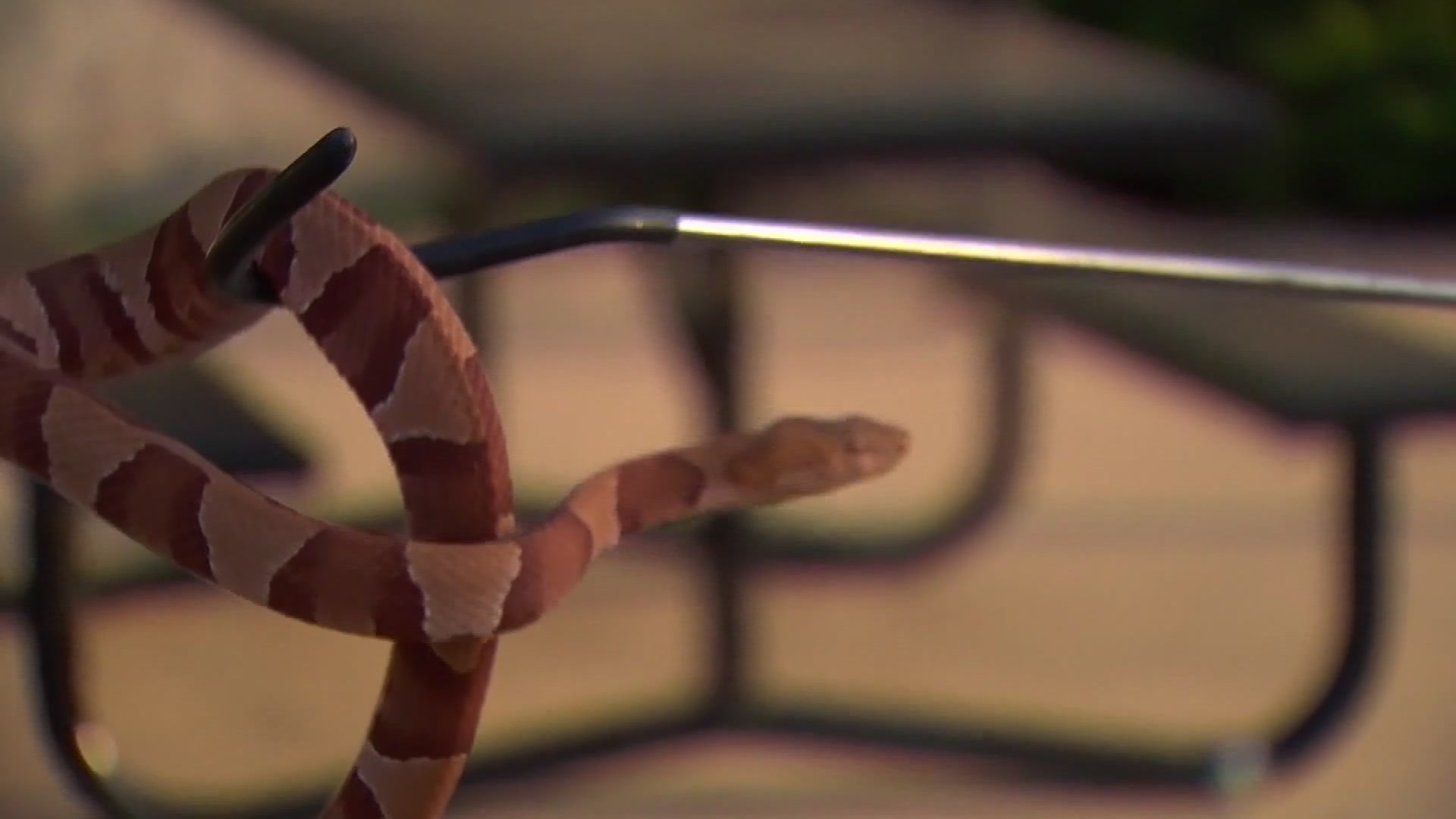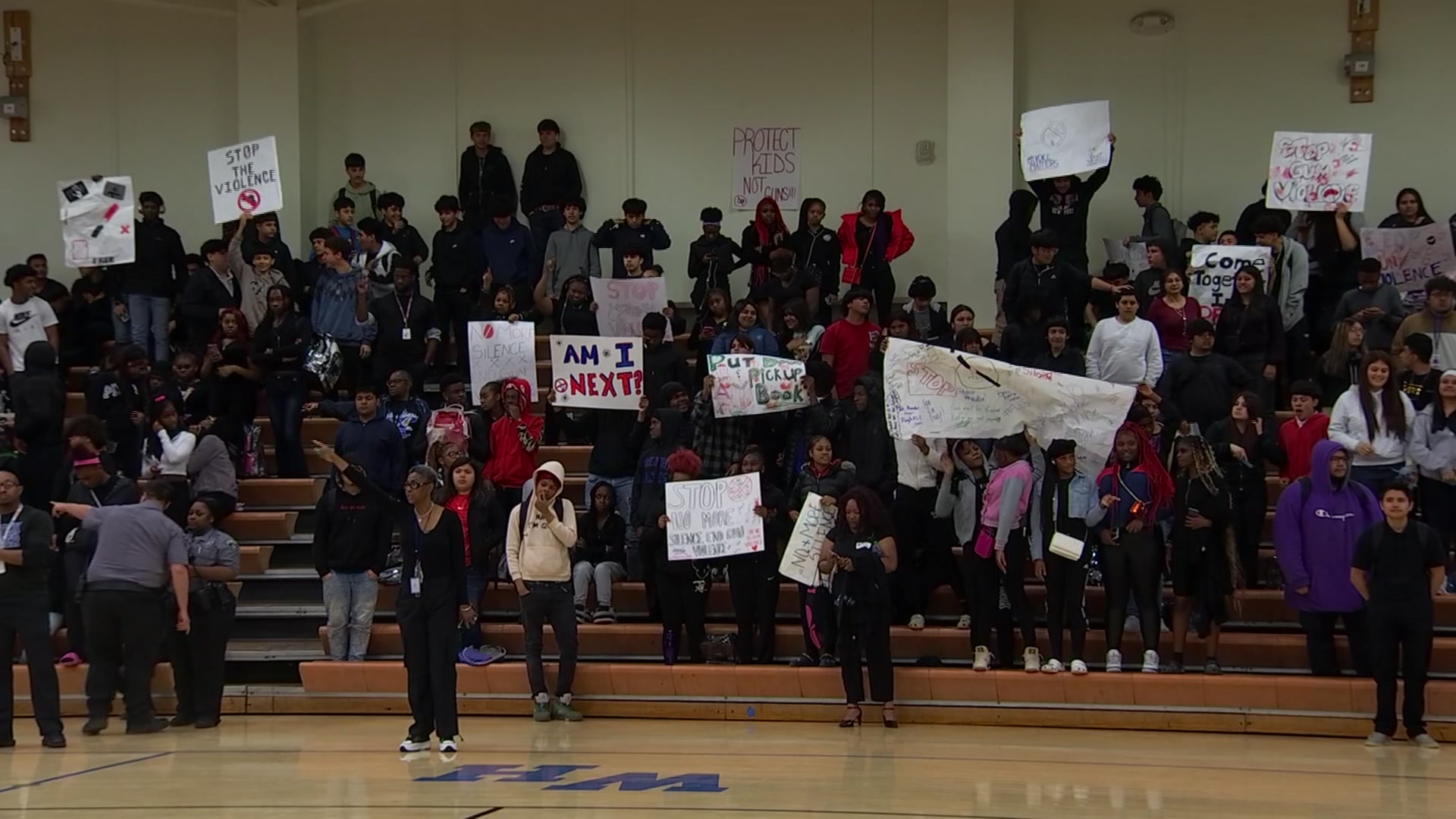The Susan G. Komen More Than Pink Walk kicks off Saturday morning in Dallas.
Thousands of breast cancer survivors and supporters are expected to gather outside NorthPark Center to reflect on their journey and remember those who have lost their battle to cancer. Details are available online.
Ahead of the meaningful event, two survivors shared their stories of hope with NBC 5.
A Three-Time Fighter
Get DFW local news, weather forecasts and entertainment stories to your inbox. Sign up for NBC DFW newsletters.
Sheila Taylor-Clark of Lewisville is excited to reunite with her sisters in pink at Saturday’s event, which is the first Komen event in two years to be held in person.
And she has so much to celebrate this time around. She just recently beat her third bout with breast cancer.
Sheila’s first diagnosis came in 2005 when she was just 34 years old.
Local
The latest news from around North Texas.
“I had no idea that this was going to be happening to me,” she recalls. “I was also dealing with grief from watching my mother-in-law pass away at 46, of the same disease.”
She remembers the feeling of helplessness during her first diagnosis.
“I got that phone call that nobody wants to get and it starts with the word 'unfortunately'. And nothing good ever comes after 'unfortunately,'" she said. “It was all a blur but in the middle of it I really did think at that point when I got the diagnosis, that I was going to die."
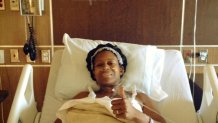
After beating cancer the first time, years passed until she received another diagnosis in 2013. By the time she overcame cancer the second time, Shelia had undergone a lumpectomy, a double mastectomy, chemo and radiation.
Then in late 2019, she felt something in her underarm. The cancer had returned for a third time.
“Yes, take the news. We all are in shock we have to deal with that and process it. But at the end of the day, we need to be ready to be a warrior and be ready to fight,” she said of her determination. “Put your battle gear on and get your prayer circle together. Be your own best advocate to your doctors.”
In her latest battle, she endured more surgeries and treatment during the height of the pandemic in 2020. Due to health department protocols, her husband, family and friends couldn’t physically be with her to support her.
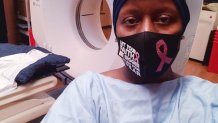
“I had to have chemotherapy again which felt different this time because I was so alone. In my first battle, I had my family by my side, classmates from college, my sorority sisters were all there,” Sheila said. “No one could bring me anything or visit because of lockdown. So I had to go through my surgeries, two of them by myself. FaceTimed with my husband and my child.”
She even got sick with COVID-19 while still going through radiation treatments but beat that, too.
“I knew I had a team because nobody walks alone,” she said.
Sheila said a saving grace throughout her three bouts with cancer has simply been her grasp on positivity. She made it a point to wear the most colorful tutus and high heels to chemotherapy treatments.
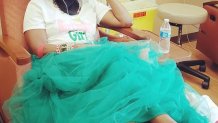
“Even at that young age, I always seem to find the humor in things. I’ve lived a great life, I’ve done some great things. And if my time is up, so be it,” she remembers. “My advice is always to go ahead and be upset. It’s OK to be sad to be angry. Deal with those emotions but deal with them for just a little while and shake it off at some point. Realize that this is a battle, a battle for your life.“
Somehow, Sheila also juggled grad school, her work as a CPA, running for the local school board, getting appointed to the planning and zoning committee in Lewisville, and raising her daughter – all while fighting cancer.
She's now in remission and devotes her time to educating the community. Compared to white women, Black women have an increased risk of dying from breast cancer.
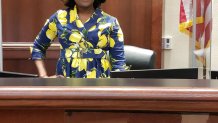
“I think in my community, there’s always the fear of, ‘I found a lump and I’m scared.' And I’ve heard that from people – I saw it sadly with my own mother-in-law,” she said. “If you wait, this disease will kill you. If you feel a lump, you have the best chance for survival if you go ahead and get a checked out and it’s caught early. You don’t want it to spread or metastasize."
She wants to remind others that even if they don’t have insurance, there are resources out there to help like the Bridge Breast Network. Susan G. Komen also provides help with treatment, resources and screenings.
Bracing for the Unknown
While many are often blindsided by cancer, there is a small percentage of women who already know of their increased chances for a life-changing diagnosis.
According to BreastCancer.org, about 5% to 10% of breast cancers are thought to be hereditary, meaning the cancer is linked to mutations in genes passed from parent to child.
That’s the case for Natalie Taylor of Dallas.
At 23, she learned her aunt had tested positive for the BRCA1 gene mutation so Natalie had a suspicion of her own risk. When she was 25 years old, a test revealed she, too, possessed the BRCA1 gene mutation.
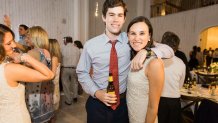
“It was something that was going to happen either way. The good thing is that I knew about it,” she said.
The BRCA gene stands for BReast CAncer gene, which are genes that produce proteins to help repair damaged DNA. Everyone has two copies of these genes, inherited from each parent. Sometimes, those genes can be a mutated variant, and those who inherit these harmful variants of the BRCA1 and BRCA2 genes can have an increased risk for several cancers, especially breast and ovarian cancer.
For Natalie’s family, heritage played a key role in understanding her risk. Her father’s side of the family is Ashkenazi Jewish, or Jewish of Eastern European descent.
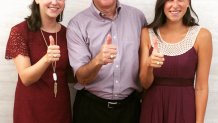
According to the CDC, one in 40 Ashkenazi Jewish women has a BRCA gene mutation and are at higher risk for breast cancer before the age of 45.
Natalie’s grandmother had a breast cancer diagnosis when she was in her 40s.
“That was 50 years ago. And at that time, most cancers were treated just surgically and they moved on. There were some chemo available but it was a very different world,” she said.
After confirmation of the gene mutation, Natalie immediately signed up for a breast cancer program at UT Southwestern to begin bi-annual checkups for those with hereditary cancer risk. Click here to learn more.
“It took me a few months to really understand, knowledge is power. This is the reality that I was dealt,” she said.
Her doctors presented several options on the table, including preventative surgeries to decrease the risk of developing cancer. But Natalie said it was a tough decision to make at such an early stage in her life.
“I had thought about it but what my doctors had assured me is, this is not a decision that you have to make right this second. If you want to have children and then think about it, there’s a lot of options here,” she recalled. “We are at a place where a lot of cancers are treatable, even curable if they’re caught early.”
At 29 years old, she was in between her 6-month screenings when she noticed a lump. She was quickly diagnosed with stage 1 triple-negative breast cancer. Luckily, her doctors already had a plan in place because of the hereditary cancer program at UTSW.
“It was a game-changer to be at a program like that because they were able to hit the ground running already. You already feel comfortable with your providers and your doctors, and you kind of skipped that step of confusion and the in-between of what’s going to happen,” she said.
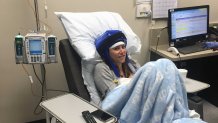
Doctors were able to start specific chemo treatment on Natalie and with the help of medicine and other therapies, she was able to power through it.
"Honestly, I was going into chemo expecting my world to be turned upside down," she said. “I remember a nurse telling me in the beginning, this is not your mother's chemo. They have amazing anti-nausea medicine, you’re not over the toilet all the time. The steroids keep you energized. You’re able to recover a lot faster. They have some really good medicine that they can give you while they’re giving you the chemo."
She even tried a cold capping method on her head to help reduce hair loss, which helped keep her confidence strong during chemotherapy treatments.
“It allowed me to keep taking control of my life a little bit. I worked throughout my entire chemo regimen," Natalie said.
Today at 31, she's cancer-free but cautious. She said it will be just a few more years until she's officially in the clear.
For now, she's making a career switch from finance to medicine, to help others on their own journeys.
“I really took an interest in my own diagnosis and I realized that this is something I’m really passionate about,” she said. “I really want to help people and make a difference in other people’s lives the way that people at the hospital made a difference in mine.”
If you or someone you know needs support through a breast cancer diagnosis, click here.

